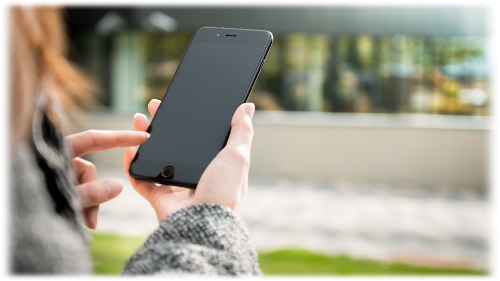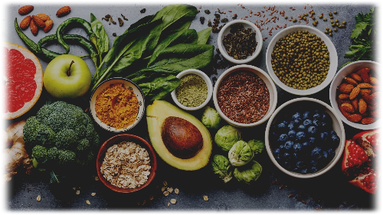1. StillnessIf there's one thing that I think many of us lack in life, it's regular moments of stillness - conscious time where you're not distracted, thinking about the next thing, or worrying about what's happened in the past. The vast majority of us live in a constant state of distraction; back in 2020, an Ofcom study found that adults in the UK spent an average of six hours and 25 minutes on their phones, TVs and laptops each day. In my experience, making the time each day to slow down & disconnect is essential to wellbeing. I like to use certain triggers during my day to remind myself to take a moment - for instance after I take a shower first thing in the morning, or after I grab my first coffee or peppermint tea of the day from Pret! During these moments, I simply sit still, breathing slowly, & become conscious of my internal state. I'm wary of allowing my thoughts to pass right on through, instead of following them down an endless thought-hole. I'm not exaggerating when I say that making regular time for stillness is the single thing that's had the greatest impact on my ability to live with a greater presence & manage feelings of overwhelm and anxiety. 2. Pay Attention"The real voyage of discovery consists not in seeking new landscapes, but in having new eyes." A lot of the mundane tasks in your daily life are done in an unconscious state - having a shower, doing the dishes, brushing your teeth, driving to work. So much of your life can pass you by without you actually living it. So, instead of just living on auto-pilot & letting your mind wander, try consciously focusing on the small things in your life. By doing so you’re training your mind to live in the present & avoid the urge to be thinking 'what's next?'. Another thing worth paying greater attention to is your environment. As thinking-beings we instinctively place mental labels on things within our environment help us deal with the shit ton of sensory input that we’re exposed to. For example, say you're walking through a forest. The best way for your brain to make sense of the huge amount of sensory information going on all around you is to just use basic labels to describe your environment. You label all of the trees around you as just 'trees', when in reality each tree is a completely unique form of life with its own history & essence. Now there's nothing bad with using labels to describe your environment; in fact it's incredibly helpful for processing all the shit you're confronted with each day! But, doing so can mean that you miss out on the beauty & complexity of the world around you. So next time you step outside, instead of relying on mental labels to describe your environment & keeping your eyes glued to your phone screen, look up. When you walk past a tree, really look at it; observe the texture of the leaves, it's shape, & all of the features that are unique to it. The more you pay attention to your environment, the more you realise that many of the aspects of life that you've over-looked, ignored, & perceived as mundane are actually incredibly beautiful & alive. Life is happening all around you - pay close attention or you’ll miss it! 3. Take Care of Your DietThe food you put in your body has a huge bearing on your mental & emotional well-being. Not only does food hold the ability to impact hormone production, but it also directly affects your gut - which is often referred to as 'the second brain'. With a healthy gut, you have greater energy, are less susceptible to illness & disease, enjoy greater mental clarity, & maintain better emotional well-being. Meanwhile, if your gut health is shaky, you'll find yourself at significantly greater risk for bloated-ness, indigestion, along with anxiety and depression. So, pay close attention to how what you eat impacts your mood, your energy levels, your skin. If you start to notice a particular pattern (e.g. you feel low energy, sad, & your skin breaks out when you eat a lot of sugar), then you've been presented with a perfect opportunity to adjust your diet for the better. The cool thing is that once you start to focus on how you feel, you'll naturally start choosing foods that are healthier for you. And when you feel healthy & good, you’re more inclined to make further good food decisions! 4. Body LanguageHow you carry your body in the world directly affects your experience of it. This means that your body language - your physical posture, facial expressions, & the way you move - can actually be the catalyst to changing how you feel. Here's a few simple ways that you can alter your body language to experience more joy:
1. Smile A study on smiling found that a smile that engages your mouth & the skin around your eyes actually activate the neurological patterns that create positive emotions. It might feel un-natural to force yourself to smile or laugh at first, but you can actually trick yourself into feeling better by doing so! Next time you find yourself feeling down, give it a go - what is there to lose? 2. Don't Slouch Whether you're walking to grab coffee or sat on the train, how you hold your spine matters. Keeping a more upright, proud-chested body posture tells your brain that you're feeling confident & powerful. 3. Open Up Keep your body open & receptive - avoid crossing your arms & generally closing off when around other people. Maintaining open body language provides a feeling of warmth & trust, meaning that others are more likely to feel comfortable around you. This, in turn, will lead to more positive interactions with other people, and who doesn't want that? |
Author
Christian Lawal Personal Training.
Personal training in Tunbridge Wells, Tonbridge & Sevenoaks. Archives
January 2024
|




